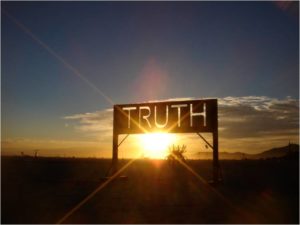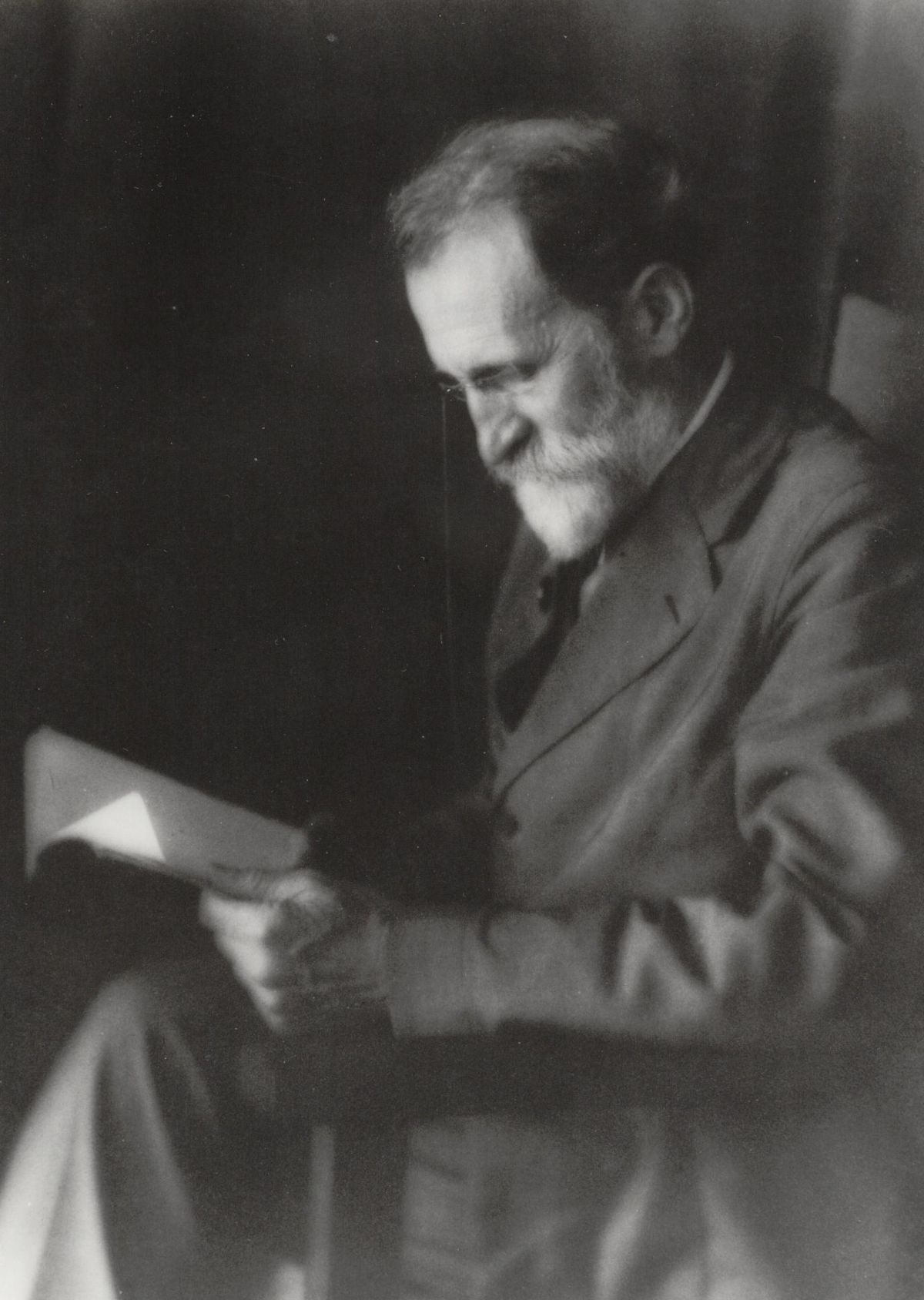Editor’s Note: Samuel Logan Brengle was the son of a Confederate soldier. He attended DePauw University in Greencastle, Indiana, and later Boston Theological Seminary. He received offers to pastor a number of large Methodist churches but joined the Salvation Army and began by shining the shoes of other cadets. He proved himself as a godly and humble young preacher and received a commission to preach in Boston. Thus began a prolific ministry of over 40 years that included authoring many books and pamphlets.
“Therefore we ought to give the more earnest heed to the things which we have heard, lest at any time we should let them slip.”
—Hebrews 3:1
The truth that saves the soul is not picked up as we would pick up the pebbles along the beach, but it is obtained rather as gold and silver, after diligent search and much digging. Solomon says: “If thou criest after knowledge, and liftest up thy voice for understanding; if thou seekest her as silver, and searchest for her as for hid treasures, then shalt thou understand the fear of the Lord, and find the knowledge of God” (Prov. ii. 3-5). The man who seeks to obtain the truth will have to use his wits; he will need much prayer, self-examination and self-denial. He must listen diligently in his own soul for God’s voice. He must watch lest he fall into sin and forgetfulness, and he must meditate in the truth of God day and night.
 Getting saved is not like taking a holiday outing. The men and women who are full of the truth — who are walking embodiments of the troth — have not become so without effort. They have digged for truth; they have loved it; they have longed for it more than for their necessary food; they have sacrificed all for it. When they have fallen they have risen again, and when defeated they have not yielded to discouragement, but with more care and watchfulness and greater earnestness, they have renewed their efforts to attain to the truth. They have counted not their lives dear unto themselves that they might know the truth. Wealth, ease, a name among men, reputation, pleasure, everything the world holds, has been counted as dung and dross in their pursuit of truth, and just at that point where truth took precedence over all creation they found it — the truth that saves the soul, that satisfies the heart, that answers the questions of life, that brings fellowship with God and joy unutterable and perfect peace.
Getting saved is not like taking a holiday outing. The men and women who are full of the truth — who are walking embodiments of the troth — have not become so without effort. They have digged for truth; they have loved it; they have longed for it more than for their necessary food; they have sacrificed all for it. When they have fallen they have risen again, and when defeated they have not yielded to discouragement, but with more care and watchfulness and greater earnestness, they have renewed their efforts to attain to the truth. They have counted not their lives dear unto themselves that they might know the truth. Wealth, ease, a name among men, reputation, pleasure, everything the world holds, has been counted as dung and dross in their pursuit of truth, and just at that point where truth took precedence over all creation they found it — the truth that saves the soul, that satisfies the heart, that answers the questions of life, that brings fellowship with God and joy unutterable and perfect peace.
But just as it costs effort to find the truth, so it requires watching to keep it. “Riches have wings,” and, if unguarded, flee away. So with truth. It will slip away if not earnestly heeded. “Buy the truth, and sell it not (Prov. xxiii. 23). It usury slips away little by little. It is lost as leaking water is lost — not all at once, but by degrees.
Here is a man who was once full of the truth. He loved his enemies and prayed for them; but, little by little, he neglected that truth that we should love our enemies, and it slipped away, and instead of love and prayer for his enemies, has come bitterness and sharpness.
Another once poured out his money upon the poor, and for the spread of the Gospel. He was not afraid to trust God to supply all his wants. He was so full of truth that all fear was gone, and he was certain that if he sought “first the Kingdom of God and His righteousness, all other things would be added” (Matt. vi. 33) unto him. He did not fear that God would forget him and forsake him and leave his seed to beg bread. He served God gladly and with all his heart; was satisfied with a crust, and was happy and careless as the sparrow that tucks its tiny head under its little wing and goes to sleep, not knowing from where its breakfast is to come, but trusts to the great God, who “openeth His hand and satisfieth the desire of every living thing, and gives them their meat in due season.” But, little by little, the devil’s prudence got into his heart, and, little by little, he let the truth of God’s faithfulness and fatherly, provident care slip, and now he is stingy and grasping and anxious about the morrow, and altogether unlike his liberal, loving Lord.
Here is another man who was once praying all the time. He loved to pray. Prayer was the very breath of his life. But, little by little, he let the truth that “men ought always to pray and not faint” (Luke xviii. 1) slip, and now prayer is a cold, dead form with him.
Another once went to every meeting he could find. But he began to neglect the truth that we should “not forsake the assembling of ourselves together, as the manner of some is,” (Heb. x. 25), and now he prefers going to the park, or the riverside, or the club-room, to going to religious meetings.
Another once sprang to his feet the moment an opportunity to testify was given, and whenever he met a comrade on the street he must speak of the good things of God; but, little by little, he gave way to “foolish talking and jesting, which are not convenient” (Eph. v.4)” and let the truth that “they which feared the Lord spake often one to another” slip, and at last he quite forgot the solemn words of our Lord Jesus, “that for every idle word that men shall speak they shall give account thereof in the day of judgment” (Matt. xii. 36). He no longer remembers that the Bible says, “Life and death are in the power of the tongue” (Prov. xviii. 21), and that we must let our “speech be always with grace seasoned with salt” (Col. iv. 6), and so, now he can talk glibly on every subject but that of personal religion and holiness. The old, thoughtful, fiery testimony that stirred the hearts of men, that brought terrible warning to careless sinners, that encouraged fainting, timid hearts, and brought cheer and strength to soldiers and saints, has given place to a few set phrases which have lost their meaning to his own heart, which have about the same effect upon a meeting that big icicles would have on a fire, and which are altogether as fruitless as the broken shells in a last year’s bird’s-nest.
Another once believed with all her heart that “women professing godliness” should “adorn themselves in modest apparel, with shamefacedness and sobriety, not with broidered hair or costly array, but with good works” (I Tim. ii. 9); but, little by little, she let the truth of God slip; she listened to the smooth whisperings of the tempter, and she fell as surely as Eve fell when she listened to the devil and ate the forbidden fruit. Now, instead of neat, “modest apparel,” she is decked out with flowers and feathers and “costly array”; but she has lost the “ornament of a meek and quiet spirit, which is in the sight of God of great price” (I Pet. iii. 4).
But what shall these people do?
Let them remember whence they have fallen, repent and do their first works over again. Let them dig for truth again as men dig for gold, and search for her as for hid treasures, and they will find her again. God “is a rewarder of all them that diligently seek Him” (Heb. xi. 6). This may be hard work. So it is hard to dig for gold. It may be slow work. So it is to search for hidden treasure. But it is sure work. “Seek and ye shall find” (Luke xi. 9). And it is necessary work. Your soul’s eternal destiny depends upon it.
What shall those who have the truth do to prevent its slipping?
1. Heed the word of David to his son Solomon: “Keep and seek for all the commandments of the Lord your God” (I Chron. xxviii. 8).
2. Do what God commanded Joshua: “Meditate therein day and night.” For what? “That thou mayest observe to do according to” — some of the things “written therein”? No! “All that is written therein” (Joshua i. 8). A young rabbi asked his old uncle if he might not study Greek philosophy. The old rabbi quoted the text: “This Book of the Law shall not depart out of thy mouth; but thou shalt meditate therein day and night,” and then replied: “Find an hour that is neither day nor night; in that thou mayest study Greek philosophy.”
The “blessed man” of David is not only a “man that walketh not in the counsel of the ungodly, nor standeth in the way of sinners, nor sitteth in the seat of the scornful, but,” notice, “his delight is in the law of the Lord, and in His law doth he meditate day and night” (Ps. i.). If you want to hold the truth fast and not let it slip, you must read and read and re-read the Bible. You must constantly refresh your mind with its truths, just as the diligent student constantly refreshes his mind by reviewing his textbooks, just as the lawyer who wishes to succeed constantly studies his law books, or the doctor his medical works.
John Wesley, in his old age, after having read and read and re-read the Bible all his life, said of himself: “I am homo unius libri” — a man of one book. The truth will surely slip, if you do not refresh your mind by constantly reading and meditating in the Bible. The Bible is God’s recipe book for making holy people. You must follow the recipe exactly, if you want to be a holy, Christ-like person. The Bible is God’s guide-book to show men and women the way to Heaven. You must pay strict attention to its directions, and follow them accurately, if you are ever to get there. The Bible is God’s doctor’s book, to show people how to get rid of soul-sickness. You must diligently consider its diagnosis of soul-diseases, and its methods of cure, if you want soul-health. Jesus said, “Man shall not live by bread alone, but by every word that proceedeth out of the mouth of God” (Matt. iv. 4); and again He said, “The words I speak unto you, they are spirit, and they are life” (John vi. 63).
3. “Quench not the Spirit” (I Thess. v. 19). Jesus calls the Holy Spirit “the Spirit of truth.” Then, if you do not wish the truth to slip, welcome the Spirit of truth to your heart, and pray Him to abide with you. Cherish Him in your soul. Delight yourself in Him. Live in Him. Yield yourself to Him. Trust Him. Commune with Him. Consider Him as your Friend, your Guide, your Teacher, your Comforter. Do not look upon Him as some school-children look upon their teacher — as an enemy, as one to be outwitted, as one who is constantly watching a chance to punish and reprove and discipline. Of course, the Holy Spirit will do this when necessary, but such a necessity grieves Him. His delight is to comfort and cheer the children of God. He is love! Bless His holy name! “Grieve not the Holy Spirit of God, whereby ye are sealed unto the day of redemption” (Eph. iv. 30).










[…] Source link […]